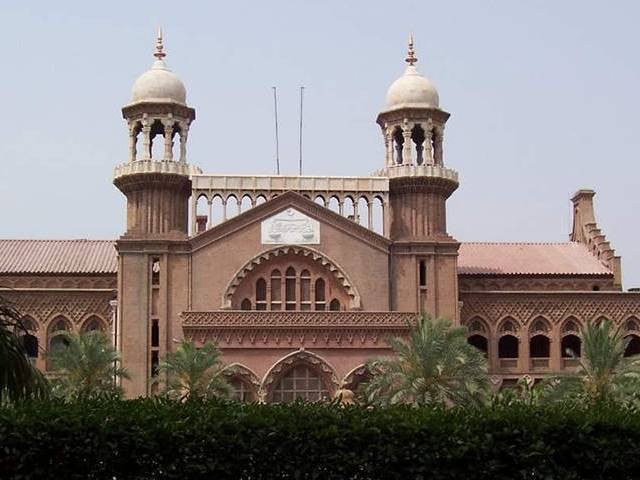LAHORE: The Lahore High Court’s Justice Shams Mehmood Mirza has urged the Pakistan Electronic Media Regulatory Authority (PEMRA) to protect the right to freely express oneself and to refrain from censoring or imposing restrictions on the speeches of political party leaders.

Founder and current chairman of Pakistan Tehreek-e-Insaf (PTI) Imran Khan appealed the decision to prohibit his name and remarks on television during a hearing when this direction was handed down.
With the general elections just around the corner, Justice Mirza urged PEMRA to level the playing field when it comes to the airing of party platforms and speeches. ‘The nature of the elections is publicly known,’ Justice Mirza said, raising doubts about the reliability of the forthcoming elections.
Advocate Muhammad Ahmad Pansota, who is representing the petitioner, clarified that February 8 has been designated as the date of the general election by the Election Commission of Pakistan (ECP). According to Pansota, the petitioner’s rights would be denied if he could not have his name or words aired on television, particularly in the days leading up to the elections.
When this was brought up, Justice Mirza unexpectedly wanted to know, “Are the elections going to be held?” Pansota responded by explaining that the ECP had announced the schedule. “Everyone knows what sort of elections are going to be held,” the judge said, restating his previous statement regarding the anticipated character of the elections.
Along with the restriction and the orders issued to TV networks, the judge questioned the organisation behind the ban. I asked him if it was PEMRA or the “agriculture department” (the term he usually used to characterise the organisation).
The media regulatory body’s lawyer said that PEMRA would react after reviewing the petitioner’s USB drive, which contained audio recordings of beeps made when Imran’s name was mentioned.
Justice Mirza stressed that free democracies should oppose speech restrictions since they are indicative of totalitarian dictatorships.
In his discussion on how things have changed, he brought up the fact that restrictions on free speech are now moot due to the widespread use of electronic devices and social media. Justice Mirza ruled that political parties should have the right to freely communicate with the public in order to promote their platforms in light of the impending elections.
In representing the federation, assistant attorney general Sheraz Zaka contended that free speech and public order must coexist. In the United States, he brought up an instance where Donald Trump was disqualified for his racist remarks. Zaka also brought up the judgement in the Faizabad dharna case, in which PEMRA was censured for its inaction in the face of hostile and incendiary remarks.
Concocted FIRs were filed against PTI officials, according to Pansota, who vehemently contested the reasoning and argued that it is unconstitutional to impose speech bans, particularly with general elections set for February 8.
Justice Mirza ruled that such dictums do not apply in this case and stressed the importance of allowing freedom to all political parties.
He ordered the PEMRA attorneys, Haroon Duggal and Waqas Mir, to have the PEMRA chairman sign an affidavit guaranteeing that political party leaders could freely speak without interference. The case was postponed for a period of two weeks.










































